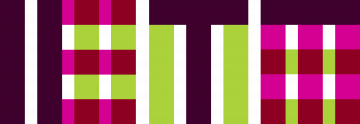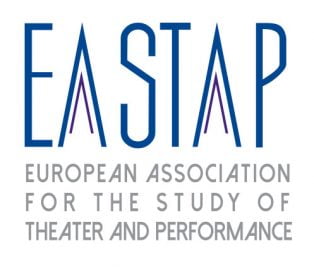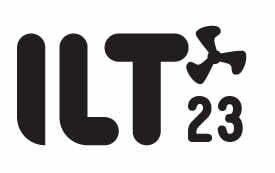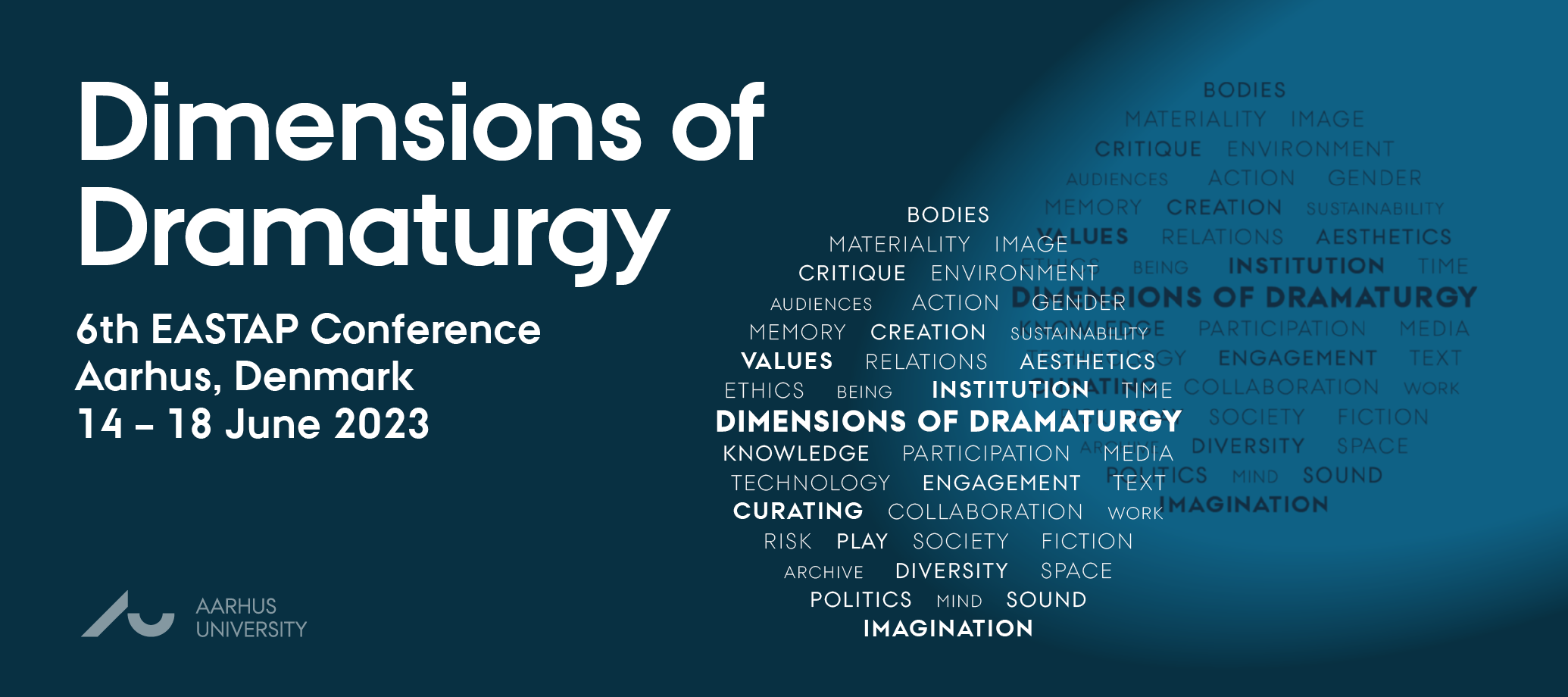EASTAP23 – Aarhus Conference Call for Papers
Download the Letter Call (PDF version)
Download the Call for partecipation (PDF version)
Dear members and friends,
I have the great pleasure of announcing the VI EASTAP Conference, which will be held in Aarhus in 2023 from June 14th to June 18th. Please find attached the text of the Call with related information. Further updates will be sent to you by e-mail and are available on the EASTAP website (https://eastap.com) and the Aarhus University website (https://conferences.au.dk/eastap-23) in a specific section dedicated to the conference.
After a reflection on Decentering the Vision(s) of Europe: The Emergence of New Forms (Paris, 2018), on Shared Memory(ies): Creation, Research and Politics in the European Contemporary Stage (Lisbon, 2019), on Creating for the Stage and other Spaces: Questioning Practices and theories (Bologna, 2020), on New Spectatorship in Post-Covid Times: Theatre and the Digital (Vilnius, 2021), on Theatrical Mind: Authorship, Staging and Beyond (Milan, 2022), in this VI EASTAP Conference we want to focus on the Dimensions of Dramaturgy.
We very much hope that this new EASTAP23 event – curated by the Aarhus University Department of Dramaturgy and the ILT Festival in collaboration with the IETM Plenary Meeting Aarhus – will be of interest to you.
We look forward to seeing you in Aarhus.
Sincerely,
Daniele Vianello, EASTAP President




VI EASTAP CONFERENCE
AARHUS (DK), 14 – 18 JUNE 2023
DIMENSIONS OF DRAMATURGY
CALL FOR PARTICIPATION
The 6th Conference of the European Association for the Study of Theatre and Performance will be hosted by Aarhus University’s Department of Dramaturgy and the ILT Festival of International Living Theatre Aarhus from 14 to 18 June 2023, in partnership with the IETM Plenary Meeting “Living at the Edge” (Aarhus 12 to 15 June 2023). We invite submissions of academic and artistic papers, presentations and communications that address our conference topic Dimensions of Dramaturgy.
EASTAP23 Associate Artists: SIGNA
EASTAP23 Associate Scholar: Lola Proaño Gómez, Universidad de Buenos Aires
EASTAP23 contributions by:
Maaike Bleeker, Eugenio Barba, Yana Meerzon, Tim Crouch, Janek Szatkowski, Needcompany, Sonia Hughes, Jäger Ooms and others.
EASTAP – THE ORGANISATION: THINKING THROUGH PRACTICE
EASTAP https://eastap.com/ was founded to bring together artists and academics and to serve as a platform of dialogue between academic research and creative practice, fostering joint debates on theatre, dance, performance and other live arts. Each year, the EASTAP conference is co-organised by a University department and a theatre or festival. EASTAP appoints an associate artist each year, and an international associate scholar from beyond Europe. The inaugural conference took place in 2018 at the Theatre de la Cité at Paris with associate artist Milo Rau, in 2019 EASTAP2 was hosted at the Teatro Nacional D.Maria II at Lisbon with associate artist Shermin Langhoff, the 2020 conference was planned in connection with the VIE Festival in Northern Italy with associate artists FC Bergman but had to be cancelled because of the Covid outbreak (videos and a book publication emerged from the plans), in 2021 EASTAP 4 was hosted online by Lithuanian National Drama Theatre and Vilnius University with associate artist Phia Ménard, and the 2022 conference took place at the Piccolo Teatro Milano with associate artist Constanza Macras.
EASTAP23 – CALL FOR PARTICIPATION: DIMENSIONS OF DRAMATURGY
Practices of dramaturgy are at the core of theatral activities. Inspired by the role and profession of the dramaturg as it emerged in German theatre, dramaturgy has become a newly vital and productive force within contemporary European theatre and performance. Today, dramaturgy no longer solely denotes formal principles of playwriting, norms for constructing dramatic narratives and plots, or the application of compositional rules and norms in performance making alone. Even the extended definition suggested by Eugenio Barba, the long-term friend and collaborator of Aarhus University’s Dramaturgy department, of dramaturgy as authorially or collectively crafted ‘actions at work’ encompassing ‘everything that works directly on the spectators’ attention, on their understanding, their emotions, their kinæsthesia’ (Barba & Savarese 1991) no longer fully captures the wide applications of this notion in 21st century theatre-making. Jeroen Peeters (2022) describes dramaturgy ‘as the development of a common ground for sense-making, for analysing material and exploring questions, for constantly observing and articulating the creation process, for pursuing the unfamiliar and accepting the haphazard, for experimenting with labour, time and instituted habits.’ Dramaturgy in this sense is an essentially relational dynamic (Boenisch 2014) that negotiates semiotic, imaginary, kinetic, (multi-)sensory and affective dimensions of action, encounter, conflict and resolution. Firmly situated at cross-disciplinary junctures, it synthesises facts, fictions and affects, mingles pasts, presents and futures, connects the local and the global, intersects diverse fields of knowledge and experience, and interweaves semiotic sense and the senses (Pewny e.a. 2014). The doing of such ‘expanded dramaturgy’ (Eckersall 2006) connects what Marianne van Kerkhoven (1999) influentially described as levels of ‘micro-dramaturgy‘ of a production with the institutional, yet also political, cultural and economic ‘macro-dramaturgy’ of our societies: Dramaturgy intertwines theatre art and material social realities (Kaynar 2006).
For Janek Szatkowski (2019), a core thinker of the ‘Aarhus theory of dramaturgy’, dramaturgy is accordingly a mediating practice of transparent communication concerned with ‘what art should do and look like, when society is as it is’. In his systems-theoretical approach, dramaturgy negotiates between an underlying poetics of aesthetic as well as ethical values and the resulting choices and decisions – in artistic creation as well as in aesthetic responses to artistic experiences. As Konstantina Georgelou, Efrosini Protopapa and Danae Theodoridou (2017) influentially argue, it is a collective, catalytic practice of ‘working on action’ that transcends attributions of individual authorship and authority. Bojana Cvejić (2015) asserts that dramaturgy is about creating, and not solving problems, as only problems force us to think beyond immediate answers, obvious solutions and, at worst, clichés. As we can conclude from these positions, dramaturgy mobilises the unique dialectic force of theatre that allows audiences to partake in a common societal event, while watching, imagining and reflecting – about different, perhaps competing sets of (aesthetic, ethic and societal) values, an ‘otherwise’ to the functional daily reality. It is the connector traversing the ever more ‘shifting grounds’ of – and in-between – social, political and material conditions, disciplines and power structures, both within and beyond the theatre (Lehmann & Primavesi 2009; Kunst 2015; Gade 2018), denoting a practice of navigating through vital ambiguities, multiplicities and contradictions.
As such, dramaturgy is closely aligned with contemporary political discourses on ‘sympoietic’ and ‘material thinking’ (Haraway 2016; Carter 2004 & 2018), with post-representational human and non-human affective dynamics (Ahmed 2006 & 2014; Barad 2003; Berlant 2011), with debates on equality, diversity and decolonisation (Romanska 2014; Sharifi & Skwirblies 2022), and with collaborative ‘commoning’ that counters prevailing neoliberal logics of precarity and singularisation (Hardt & Negri 2008; Reckwitz 2017; Lorey 2020). Almost by necessity, this productive expansion of the term and of practices of dramaturgy thus has no one common denominator. They do not result from a singular linear development (‘from theatre to performance’, ‘from dramatic to postdramatic’), neither have they emerged in parallel from entirely cognate contexts, nor resulted from precisely symmetrical impulses. Dramaturgy today manifests itself as an inclusive and yet diversified concept: but – as Maaike Bleeker (2022) emphasises – ‘although dramaturgy can be many different things in different creative practices, this does not mean that […] dramaturgy cannot be defined more precisely.’
As a dedicated Department of Dramaturgy, rather than a general department of theatre studies or theatre science, we therefore propose to use the occasion of the 6th EASTAP conference at Aarhus to survey the multiple dimensions of the plural concept and practice of dramaturgy in theatre and related contexts. We propose four core thematic nodes to debate and interrogate contemporary as well as historical (and potentially even future, emerging) dimensions of dramaturgy:
- DRAMATURGIES OF IMAGINATION AND CREATION
- Play-making, writing, creating, devising, story-telling, gaming, experiencing
- Modes of Collaboration, communication and translation
- Mind, cognition, imagination, reflection
- The changing role(s) of the professional dramaturg & dramaturgy without a dramaturg
- Critical, collaborative, collective interaction(s) of and with the spectator
- DRAMATURGIES OF TEMPORALITIES AND ACTUALITIES
- Cultural negotiations of historicity, legacies, presence, contemporariness
- The here-and-now actuality in theatre and performance of the past, the present and the future
- Politics of the archive, artistic heritage and decolonial de-/re-constructions
- Transformations of knowledge and alternative epistemologies
- Theatre and performance historiography and changing dramaturgical approaches to both processes of performance creativity and to performance analysis
- DRAMATURGIES OF MATERIALITIES AND MEDIALITIES
- Socio-material entanglements with spaces, sites, bodies and objects
- Dramaturgies of engagement in digital and social media
- The material turn and the dramaturgy of props and costumes
- Sustainability and connecting human and non-human beings through work-of-actions
- (Post-)anthropocentric theatre and performance, and eco-dramaturgies of repair, reconnection and remembrance
- DRAMATURGIES OF INSTITUTIONS AND INTERSECTIONS
- Responsibilities to texts, artists, audiences, cultures, politics and policies
- Dramaturgies of existences, genders, ethnicities, identities and abilities
- Facilitation, pedagogy and applied dramaturgies
- Implication, curation, complicity, protest, solidarity, equality, plurality
- ethical relations to the ‘no longer hostile plurality’ (Adorno, Negative Dialektik)
EASTAP EMERGING SCHOLARS FORUM 2023
The Emerging Scholars Forum gives early career researchers an opportunity to present their research in a supportive environment with room for debate and feedback. It is also a community for networking with other emerging scholars and will include a social event. Papers for the ESF can follow the call theme of “Dimensions of Dramaturgy, or present a topic from the scholar’s own ongoing research. Each participating scholar will have max. 15 minutes to present their paper to allow more time for discussion and feedback. We recommend that you focus your paper on a specific issue or problematic you would like to discuss, instead of presenting the general scope of your research. Keep contextualisation short and focus on specific cases, theories, methodologies and/or concepts and the questions which you would like to raise in relation to these.
If you wish to participate in the Emerging Scholars Forum, please submit as indicated below, stating clearly in the headline or the header that your paper is proposed for the Emerging Scholars Forum.
Convenors of the Emerging Scholars Forum: Julia Tonsberg, Aarhus University, Alice Golisano, University of Warwick
SUBMITTING YOUR PROPOSAL FOR CONTRIBUTION
DEADLINE EXTENDED!
If you wish to submit a proposal for a contribution, send your proposal by 31st January 2023 to the conference email EASTAP23@cc.au.dk .
EASTAP23 conference languages are English and French.
Panel sessions will last 75 minutes and usually consist of 3 contributions. Individual contributions should be timed between 15 and max. 20 minutes (max. 15 minutes for the Emerging Scholar Forum) to allow for sufficient discussion time. Proposals for curated panel sessions must also adhere to the 75 minute panel format.
Proposals must include:
- Name of the proposer(s) and institutional affiliation(s)
- Title and Abstract of 250-300 words in the language of the presentation (ENG/FR) and an English translation if the contribution will be delivered in French
- Indication of the conference thematic node the proposal relates to, or if the proposal is for the Emerging Scholars Forum
- Indications of 5 core keywords and 3-5 key references (literature, artists, performances…)
- CV of 100 words
- Statement of technical requirements
- File Format: Word document, Times New Roman, 12 pt
All proposers, conference contributors and conference attendants must be current members of the EASTAP European Association for the Study of Theatre and Performance with an active, paid subscription. Membership Information can be found at https://eastap.com/registration/
The selection of panels/papers will be made by the Conference organizers in consultation with the Conference Advisory Board. The decisions will be published in February 2023.
Conference registration will open in February 2023. Proposers of an accepted contribution who do not register for the conference by the deadline stated in the acceptance letter will be deemed to have withdrawn their participation. Details about the conference fee, which this year will include daily lunches, information about the EASTAP-ILT Festival Subscription, and about opportunities for a joint registration for EASTAP and the IETM Plenary Meeting “Living at the Edge” (12-15 June) will all be published alongside the response to proposals.
EASTAP23 ORGANISATION TEAM
EASTAP 23 is curated by the Aarhus University Department of Dramaturgy and ILT Festival
in collaboration with the IETM Plenary Meeting Aarhus.
AU Organisation Committee: Annelis Kuhlmann, Louise Ejgod Hansen, Thomas Rosendal Nielsen, Ida Krøgholt, Ulla Kallenbach, Julia Tonsberg and Peter M. Boenisch.
AU Chief Coordinators: Pia Burgaard and Betina Ramm (IKK Department Administrators, Kasernen), Pia Gjermandsen (website), Sara Bach Conijn (conference producer), Sascha Mai Jensen and Norma Nedberg Skretting (conference administrators).
EASTAP23 ADVISORY BOARD
Farnaz Arbabi, Unga Klara, Stockholm
Knut Ove Arntzen, University of Bergen
Synne Behrndt, Stockholm University of the Arts
Frank Camilleri, University of Malta
Rui Pina Coelho, FLUL University of Lisbon
Raphaëlle Doyon, Université Paris 8
Liesbeth Groot Nibbelink, Utrecht University
Seda Ilter, Birkbeck College, University of London
Christopher-Fares Köhler, Deutsches Theater Berlin
Bojana Kunst, Justus Liebig University Giessen
Florian Malzacher, Berlin
Alix de Morant, Université Paul Valery Montpellier 3
Nikolaus Müller-Schöll, Johann Wolfgang Goethe University Frankfurt
Sargun Oshana, Blaagaard Teater Copenhagen
Milo Rau, NT Gent
Avra Sidiropoulou, Open University of Cyprus
Agata Tomšič, ErosAndEros/POLIS Teatro Festival, Ravenna
Karen Vedel, University of Copenhagen
Daniele Vianello, University of Calabria
EASTAP23 AT AARHUS
Aarhus is Denmark’s second largest city, the main city on the island of Jutland, and one of the big harbour ports of Europe. In 2017, it was European Capital of Culture. With AROS and Musikhuset, Aarhus houses the largest museum as well as the largest concert hall of Scandinavia. Aarhus University, founded in 1928, is Denmark’s second oldest and second largest university; in addition to its strong natural and economic sciences, which have produced 3 Nobel Prize winners, it offers the largest interdisciplinary research and education environment in the Humanities in Northern Europe. The dedicated Dramaturgy education at AU celebrated its 60th birthday in 2019.
You can reach Aarhus by train: it is located approx. 4 hours from Copenhagen and Hamburg. You can also travel to Aarhus by airplane: Aarhus Airport AAR is the local airport, only 30 minutes outside the city. Billund BLL is Jutland’s central international airport, and approx. 90 minutes away on regular bus connections, either direct or changing to/from the train at Vejle. Aalborg AAL is Jutland’s third international airport and approx. 2 hours away on a direct train connection. For more information, visit www.visitaarhus.com.
!!! Please note The EASTAP23 conference at Aarhus will take place simultaneously with the IETM Plenary, the international ILT theatre festival, and the International Literature Festival LiteratureXChange. We therefore expect hotel spaces and accommodation to be in very high demand during this week in June 2023, and recommend early booking now. Information about EASTAP arrangements with Aarhus hotels is already available on the conference website.
EASTAP23
Theatre & Performance in Denmark June2023 – Save the dates:
1-10 June — CPH Copenhagen Stage Festival
12-15 June — IETM Plenary Meeting Aarhus
14-18 June — ILT Festival & EASTAP conference Aarhus
Keep up to date with EASTAP23 on the conference homepage
https://conferences.au.dk/eastap-23
Contact address for conference-related enquiries: EASTAP23@cc.au.dk
